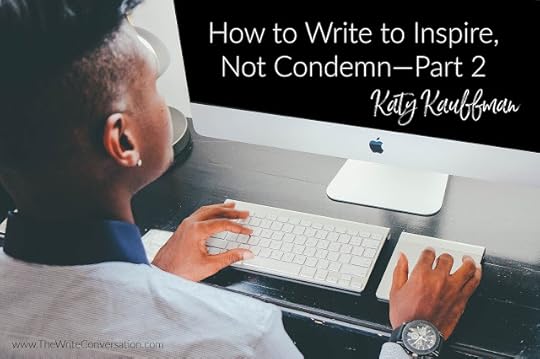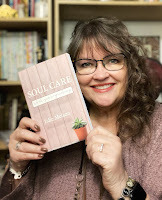Edie Melson's Blog, page 132
March 20, 2022
Prepare to get Multiple Contract for Books

by Karen Whiting @KarenHWhiting
You start with a book idea, but adding a little more brainstorming can turn one idea into topics for several related books. That can spawn multiple contracts for multiple books or a series, in fiction or nonfiction. Be focused as create proposals that pitch more than one book.
Creating Multiple Book Ideas
Know your brand and body of work you’d like to create someday. This should relate to one word that shares the core of your writing. Normally a writer’s core message is woven into each book without the author realizing it. That’s because it tends to flow from the author’s deeply held beliefs. To identify it, look at all your ideas, and anything written. It may help to brainstorm with another writer or talk to with a life coach or writing coach. This word becomes your umbrella under which your ideas should all fit.
For example, when Sandra Felton, the Organizer Lady, wrote her first book for Messies she only thought of the one book. Readers wanted more and sales soared. She branched outward within organizing to help readers motivate their families to organize and went deeper with devotions on being organized. She also looked at specific topics such as organizing a desk or closet Her core topic remained organizing.
Developing Readership Through a Brand
Branding helps editors understand your vision and outreach without considering you as scattered. A group of titles might not define the brand, but the brand should help identify what books belong in it. Within the brand, editors like to see an author developing their main audience. Going to various reader ages, groups, or interest can make marketing harder, unless the pathway to reach them is clear. I write for families with the brand Growing Tomorrows Wholesome Families. I wrote books for moms and then provided tools to equip the mom’s family with books for children. Moms who like my writing, buy the companion books for family members.
Another reason branding helps is to develop the author’s following. Readers often want more from an author who helped them in a needed area. So, if a reader liked a prayer book from an author and wants more, they will look to see if that author has other books related to prayer.
When editors realize the author has a wider plan, the vision and marketing ideas increases the interest in contracting books. They are investing in more than one book idea and see the possibility for a line of books.
Convey the Bigger Picture
To garner multiple book contracts, be sure to share your vision well. In the proposal for a book, add a section on possible future books or series. This is a section to show ideas of what can come next. It’s also a good place to explain how and why more books would fit well. So, in proposing a family devotional, I focused on one for busy families and then in the section for future books I shared about a few other ideas for family devotions that include one on family prayer. The third of that series, on family prayer, recently released.
Another way to present the idea of more books is with a little catalog of ideas to print and bring. Editors are readers, so they can glance at other ideas while you meet. I use separate pages for each genre and audience (so NF for women on one page, children’s book on another, articles on another, NF devotions on another). I add a short description below each title. That way I can pull out the pages that might interest a particular editor. It’s a quick way to share your ideas. I have sold books and articles from the catalog rather than the one I was pitching.
Develop Good Time Management
Be prepared to write a few books in a year to meet deadlines for contracts for multiple books. I use spread sheets instead of outlines. I can put all the elements planned for a book in a spread sheet. I include all I need to write the book from scriptures, talking points, and anecdotes to research links. This way if it takes a few years for a contract on a specific book, I can start writing from the spread sheet.
Be sure you have an idea of how long it takes you to write a chapter or book, edit your manuscripts, and go through a galley. That way you can negotiate workable deadlines for your book(s).
Build Your Writing Authority
Write articles, social media posts, active blogs, and speaking on the topics of the book(s) you are pitching and the related book ideas. That helps establish your wider branding and ability to write on multiple topics within thee brand. As the first book of family devotions released I wrote an article on family prayer for a large online magazine (two million readers) that hit number one for them. That helped solidify writing the third devotion, on family prayer.
Multiple contracts can happen anytime. The week I received my first book contract, I received contracts for 3 other books from two other editors (one picked up on more books I could write from the proposal). However, only start pitching multiple ideas if you are ready to write multiple books in a year.
TWEETABLEPrepare to get Multiple Contract for Books, tips from @KarenHWhiting on @EdieMelson (Click to Tweet)
 Karen Whiting (WWW.KARENWHITING.COM) is an international speaker, former television host of Puppets on Parade, certified writing and marketing coach, and award-winning author of twenty-seven books for women, children, and families. Her newest book, The Gift of Bread: Recipes for the Heart and the Table reflects her passion for bread and growing up helping at her grandparent’s restaurant. Check out her newest book Growing a Mother’s Heart: Devotions of Faith, Hope, and Love from Mothers Past, Present, and Future. It's full of heartwarming and teary-eyed stories of moms.
Karen Whiting (WWW.KARENWHITING.COM) is an international speaker, former television host of Puppets on Parade, certified writing and marketing coach, and award-winning author of twenty-seven books for women, children, and families. Her newest book, The Gift of Bread: Recipes for the Heart and the Table reflects her passion for bread and growing up helping at her grandparent’s restaurant. Check out her newest book Growing a Mother’s Heart: Devotions of Faith, Hope, and Love from Mothers Past, Present, and Future. It's full of heartwarming and teary-eyed stories of moms.Karen has a heart to grow tomorrow’s wholesome families today. She has written more than eight hundred articles for more than sixty publications and loves to let creativity splash over the pages of what she writes. She writes for Crosswalk. Connect with Karen on Twitter @KarenHWhiting Pinterest KarenWhiting FB KarenHWhiting
Featured Image: Photo by Gülfer ERGİN on Unsplash
Published on March 20, 2022 22:00
March 19, 2022
Packing for a Writing Conference

by Tammy Karasek @TickledPinkTam
We are now into the full swing of writer’s conferences this year. Some writer friends have attended a conference already and others have shared where they’ll be going in the coming months.
If you’re registered for an upcoming conference, I want to share some tips for you as you prepare to pack what you think you’ll need. Whether this is your first time or your tenth time to attend, I hope my tips will assist you in your preparations.
You will see and hear other folks’ hints and tips of what to take to a conference. What I have to offer is probably not what you would expect a packing list to have. But my list includes items one might not think about taking, until you are reminded to do so.
What to Pack for a Writing ConferenceFirst item to pack is your open mind. You may hear a suggestion or helpful hint from a faculty member, editor or agent. Be open to receive their suggestion. Write it down. Let it sink in. Once home when you read through all your conference notes, it may make more sense and could very well be your next best step in your writing or speaking path. Next, turn those listening ears on. You’ve opened your mind to receive a message of instruction, make sure your listening ears are truly listening to what is said. Again, make those notes. Something not quite clear? Put an X beside it and when it’s time for questions, request clarification. A teacher is excited when a student wants to learn. Make sure you pack an extra dose of patience. Elevators may seem to take forever. The person with the appointment before you may be trying to take more than their allotted fifteen minutes. You have to stand in line for the food line. These all happen, but it’s not personal—look around, there are people in the same position as you and it’s normal. Slow down, strike up a conversation with someone else waiting. This is a great time to make a new writer friend or two. A willing heart. Be ready for God to speak through others at a conference. Whether it’s through a message from a keynote speaker, your teacher or maybe even someone talking to another person at the table. God can and will use different ways to speak to us. Have a prayer waiting for an answer about your next step? The next words spoken may be that answer. Be willing to hear God whisper His answer to you.Head up, eyes open. Be mindful to keep your head up as you walk and your eyes open. You never know when you may pass someone who is fighting tears or nervous because they’re about to pitch their book idea to an editor or agent for the very first time. Do you remember how that felt? YOU may be exactly what they need and God has placed you there, in that moment, to stop them and ask if they are okay or need a quick prayer. I did this once, totally freaked me out when the person said, “Yes, I’d love for someone to pray these butterflies away. They’re making want to vomit.” I jumped out of my comfort zone, prayed for them right there—out loud—then asked if I could hug them, and then did. I also prayed for them during their fifteen-minute appointment. So head up, eyes open.Willing to receive. While we all want to serve and love on others, remember to not block someone else’s blessing by not receiving others’ offers to help or pray for you. There are no hero buttons handed out at the end of a writers’ conference for those that throw up a hand and say, “No thanks, I don’t need help—I’ve got this.” Do they really? Yeah, probably not. Allow others to come along side of you and receive their encouragement or assistance. Don’t do it alone. Last, pack a huge dose of excitement. Conferences can be stressful, especially for a first-timer. Yet they can be filled with great instruction, encouragement and fun if you remember that these writers’ conferences are organized and planned with you in mind. They want to serve and help you as you walk the path of your writing journey. They are filled with faculty and staff who are eager to see the expressions on your face when a new point finally makes sense to you. As a teacher, I have no greater joy than to look out into my class of writers and see the face of a student who now understands the concept of what was being taught. Best. Moment!There are so many more items I could come up with for you, but I wanted to give you some of the important ones I feel will help you have a successful conference experience. There will be other lists posted on websites on what to pack, which are very helpful in the practical sense. I wanted to give you something else to ponder as you pack.
Some of you reading this post have gone to a conference before, so what other kinds of advice would you add to the list above? Please share in the comments.
Oh, but don’t forget to pack those tummy meds—try as we might, sometimes those butterflies still want to show up when we least expect them.
TWEETABLEPacking for a Writing Conference, tips from @TickledPinkTam on @EdieMelson (Click to Tweet)
 Tammy Karasek uses humor and wit to bring joy and hope to every aspect in life. Her past, filled with bullying and criticism from family, drives her passion to encourage and inspire others and give them The Reason to smile. She’s gone from down and defeated to living a “Tickled Pink” life as she believes there’s always a giggle wanting to come out!
Tammy Karasek uses humor and wit to bring joy and hope to every aspect in life. Her past, filled with bullying and criticism from family, drives her passion to encourage and inspire others and give them The Reason to smile. She’s gone from down and defeated to living a “Tickled Pink” life as she believes there’s always a giggle wanting to come out! She’s the Social Media Manager for the Blue Ridge Mountains Christian Writers Conference, Founding President and current Vice-President of ACFW Upstate SC, Founding President of Word Weavers Upstate SC. She’s a writing team member for The Write Conversation Blog, Novel Academy, and MBT Monday Devotions and others. Her work was published in a Divine Moments Compilation Book—Cool-inary Moments. When not writing Women’s Fiction and Rom-Com, she’s The Launch Team Geek helping authors launch their books and a Virtual Assistant for authors.
Featured Image: Photo by Oliur on Unsplash
Published on March 19, 2022 22:00
March 18, 2022
When a Writer is Discouraged, Pause and Look to God

by Emme Gannon @GannonEmme
I often struggle to squeeze words from my soul when I write. I admit it. I ask God if I heard Him correctly. Am I wasting my time, Lord? If this is Your will for me, why is it sometimes so hard? Why do the words often seem frozen inside with no hope of escape?
Scripture is full of men and women whose reaction to God’s call was to list the reasons He had made an error in calling them. Moses was asked to lead Israel from being slaves of Pharoah to a land of promise where they would be free. No God, you must have made a mistake. I can’t be the one. My words aren’t convincing. I can’t possibly stand before Pharoah and the Egyptians. They are mighty and I am weak.
Moses had a self-esteem problem. To save his life his family had allowed him to be raised by Pharaoh’s daughter. He grew up with two nations vying for loyalty inside of him. Living in one and belonging to another. His attempt to help a man of Israel had disastrous results and he fled Egypt in fear and ended up in a foreign land working as a shepherd, his image of himself more skewed than ever. It was this man, still hiding out in the land of Midian that God called to lead a nation to freedom.
Be Faithful in the Little Things
In His wisdom God had allowed Moses to learn the humble role of shepherd so that he could apply his learning to God’s future role for his life. As a shepherd Moses had to provide food, water, shelter, and protection for the flock in his care. He was responsible to the owner of the sheep. As shepherd, he was entrusted with seeing that the sheep knew his voice and followed his lead. He was alert to danger so that he could lead and guide the sheep to safety. At the perfect time, God moved Moses from shepherd of sheep to shepherd of Israel.
I envision Moses’s forty years in Midian as his pause—that time of reflection where life stands still and we live in the now, our minds temporarily free from the tasks or burdens of tomorrow and what we need to do to fix them. It’s that time when we allow God to speak to the now and show us how He has prepared us to do the thing He is calling us to do.
Who is the Hero of Your Life’s Story
The world can be a fearful place, filled with danger and entrapments. We may seem small in a land of giants. Moses knew that feeling. He knew the evil minds of the Egyptian rulers. He knew that he would have no power over them. God understood. God showed Moses that if he would allow God to be the hero of his story, everything would change. Moses would be the tool. God the power.
Most of us are not called by God to such a task as leading a nation to freedom. No matter how small, what God asks us to do fits into His grand plan. His legions of angels are on the ready to open hearts to our words and stories, even if they are few. The key is letting Him be the hero of our life’s story.
For it is only when He leads can we see with spiritual eyes and discern the correct way through the wilderness. Fear subsides and the words miraculously come. Peace soothes our soul and we’re no longer afraid for God has spoken. We paused and listened and heard with spiritual ears the voice of God. Follow Me for I am mighty and will give strength and wisdom to your soul.
TWEETABLEWhen a Writer is Discouraged, Pause and Look to God, encouragement from @GannonEmme on @EdieMelson (Click to Tweet)
 Emme Gannon is a wife, mother, and grandmother who loves to write stories that stir the heart. Her award-winning writing has appeared in Focus on the Family magazine, several anthologies, and numerous newsletters. She just completed her first novel.
Emme Gannon is a wife, mother, and grandmother who loves to write stories that stir the heart. Her award-winning writing has appeared in Focus on the Family magazine, several anthologies, and numerous newsletters. She just completed her first novel.
Published on March 18, 2022 22:00
March 17, 2022
Just Write It!

by Crystal Bowman
In my last post I shared how I get inspiration and ideas for my writing from everyday life, but my writing projects are not always based on “inspiration.” Sometimes my inspiration comes from having a publishing deadline. I am a monthly contributor to a children’s magazine as well as a few online blog sites. I also accept work-for-hire contracts with publishers that typically have a shorter deadline than my royalty contracts. So there are times when I write not because I have a creative idea, but because I have an obligation to fulfill an agreement with a publisher.
In 1988, “Just Do It” became the slogan and trademark of the shoe company Nike. With this key feature of the brand, Nike was able to increase its worldwide shoe sales from $877 million to $9.2 billion over a period of ten years. According to many publications, “Just Do It” was named the best slogan of the 20th century.
For athletes, the slogan is motivation to go out on the playing field and give it all you’ve got. No hesitation. No excuses. No whining. Just get out there and compete. For me as a writer, it means the same thing. No hesitation. No excuses. No whining. Just turn on the computer and write (and it also helps to pray).
Writing is as much of a discipline as it is an art.
I love writing stories or articles when I have a creative idea. I enjoy seeing the words appear on the computer screen as my fingers dance over the keyboard. I keep writing until I have emptied my heart, soul, and mind. It’s a satisfying feeling to transport what’s inside of me to something tangible in front of me. However, I have found the same thing to be true when I turn on my computer with few or no ideas in my head. As I stare at the blank screen, I just start typing and things happen. Of course it doesn’t all fall into place immediately, but no matter what you are writing or why, every project requires tweaking and revising and a billion revisions.
Bottom Line
So, my advice to aspiring writers is a slogan I borrowed from Nike with a bit of a twist: Just Write It! Don’t wait until you are inspired or when the moon and stars are in alignment. Find your writing spot away from distractions. Have your favorite beverage within reach. Turn on your computer, then get out on the playing field, and give it all you’ve got. You might be surprised at the words that appear on your screen, all because you just did it!
TWEETABLEJust Write It! Encouragement from Crystal Bowman on @EdieMelson (Click to Tweet)
 Crystal Bowman is an award-winning, bestselling author of more than 100 books for children and four nonfiction books for women. She also writes lyrics for children’s piano music and is a monthly contributor to Clubhouse Jr. Magazine. She loves going to schools to teach kids about poetry. She also speaks at MOPS (Mothers of Preschoolers) groups and teaches workshops at writers’ conferences. When she is not writing or speaking, she enjoys going for walks, working out at the gym, and eating ice cream. She and her husband live in Michigan and have seven huggable grandkids.
Crystal Bowman is an award-winning, bestselling author of more than 100 books for children and four nonfiction books for women. She also writes lyrics for children’s piano music and is a monthly contributor to Clubhouse Jr. Magazine. She loves going to schools to teach kids about poetry. She also speaks at MOPS (Mothers of Preschoolers) groups and teaches workshops at writers’ conferences. When she is not writing or speaking, she enjoys going for walks, working out at the gym, and eating ice cream. She and her husband live in Michigan and have seven huggable grandkids. WWW.CRYSTALBOWMAN.COMWWW.FACEBOOK.COM/CRYSTAL.BOWMANWWW.FACEBOOK.COM/CRYSTALJBOWMANWWW.INSTAGRAM.COM/CRYSTALBOWMANAUTHOR
Featured Image: Photo by Fa Barboza on Unsplash
Published on March 17, 2022 22:00
March 16, 2022
How to Use Blog Links to Increase Your Website’s Search Engine Rank

by Susan U. Neal RN, MBA, MHS @SusanNealYoga
A website’s PageRank tells Google and other search engines that the page is valuable or has important information on it. Pages with a higher rank usually appear on the first few pages of a search engine result page (SERP). Numerous factors help a page or website rank well. One of those factors is links to and from the website.
What Is PageRank and How Is it Affected by Links?
When a high-ranked website includes a Dofollow link to a lower ranked site, the link boosts the low-ranked website’s value by search engines. The lower ranked site gets more PageRank points from the high-quality Dofollow link. Therefore, a Dofollow link is better than a Nofollow link when you are building links back to your website.
What Are Dofollow and Nofollow Links?
For the web user, Nofollow and Dofollow links are indistinguishable. The reader can click on a Nofollow link in a blog, but the link does not have any search engine optimization (SEO) weight. But when another website links to yours with a Dofollow link, it can positively affect your website’s search engine ranking. If you are writing guest blogs, you want the links in your bio to be Dofollow links. Most bloggers post their guests’ author information with Dofollow links.
Dofollow links have greater value than Nofollow links. A Dofollow link gives PageRank indicators to search engines and a Nofollow link doesn't. The distinction lies in how the Google algorithm treats each link. A Nofollow link lets search engine bots or crawlers know that the link shouldn't affect the PageRank score.
Search engines such as Google determine the quality and quantity of inbound links to your website as a measure of the value. Since 2005, Google has been using a weighted point system to determine how valuable a page is and whether it should show up in a search results page. Search engines consider the value of links pointing to a page or website.
Nofollow links do still have value even if they don't improve a website’s PageRank. Most sites gain Nofollow links naturally over time. A site that doesn’t have any Nofollow links, could be a red flag to bots that the website is spammy. As bloggers, we should use Nofollow links to spammy websites to avoid association with them.
Why should you Write Guest Blogs?
To improve your website’s rank on Google, write guest blogs for high-authority websites. Domain authority is a scoring system to determine how high your website ranks on search engines. The higher the domain authority, the more likely it will improve your website’s rank if you write a blog for the site. If you would like more information, read the article, Improve Your Website’s Domain Authority.
How can you tell if a website has a high domain authority? Go to https://moz.com/domain-analysis - index and enter the website’s domain name and click analyze. A domain authority between 40 and 50 is considered average and between 50 to 60 is good. I would not write a guest blog for a site with a domain authority below 15, as that can lower your website’s rank on Google. But writing for a site with a domain authority above yours will improve your website’s rank on Google.
My websites, SusanUNeal.com and ChristianPublishers.net, ranked 50 and 53 respectively because I hired a search engine optimization (SEO) analyst. You can check out his services at Magnum Marketing. Both are high domain authority sites. I accept guest bloggers for both. If you would like to write a guest blog for either site, request the blog guidelines at CIPA@ChristianPublishers.net. Check out the gorgeous Pinterest Pins created for each blog on both websites. Anyone who clicks on one of the pins, goes to the corresponding blog and finds out about the author and their book.
Unfortunately, blogging on low-ranked websites can decrease your website’s Google rank. It may appear as if your content is not valuable. Make a strategic plan to submit a guest blog to high-ranking sites monthly. Links to your website will improve your site’s rank on search engines.
What Type of Links Should you Post on your Blogs?
When you create a new link on your website, such as in a new blog post, it will usually be a Dofollow link. By default, all links are Dofollow unless the person posting it changes the link to Nofollow. So how do you change a link from Dofollow to Nofollow?
When uploading a blog post on a WordPress website, click on a link and a drop-down menu will appear. Click on edit and link options. At this point, a box appears, and you can click on open link in a new tab and add Nofollow. You want some of your links to be Nofollow links, so Google bots think your site is legitimate and not spamming Dofollow links.
For example, advertising, sponsored blog posts, and ads that result from paid relationships should use the Nofollow attribute. That helps make it clear to Google that you’re not trying to game the system with a link scheme.
Remember that Dofollow links will help you build PageRank. The more links from high-authority websites on the world wide web going to your website, the better. And a mixture of Dofollow and Nofollow links on your blog is best. Invest some time in making your website rank higher through implementing these blogging strategies.
For more blogging tips, please see last month’s article, Blogging Tips to Increase Website Traffic, and take my blogging course, Drive Traffic to Your Website through Blogging, at CIPA.Podia.com.
TWEETABLEHow to Use Blog Links to Increase Your Website’s Search Engine Rank - tips from @SusanNealYoga on @EdieMelson (Click to Tweet)
 Susan U. Neal, RN, MBA, MHS: Susan’s mission is to improve the health of the body of Christ. She has her RN and MBA degrees, as well as a master’s in health science. She is a CERTIFIED HEALTH AND WELLNESS COACHwith the American Association of Christian Counselors. She published five books, the Selah award winner 7 STEPS TO GET OFF SUGAR AND CARBOHYDRATES, CHRISTIAN STUDY GUIDE FOR 7 STEPS TO GET OFF SUGAR AND CARBOHYDRATES, HEALTHY LIVING JOURNAL, SCRIPTURE YOGAa #1 Amazon best-selling yoga book, and YOGA FOR BEGINNERSwhich ranked #3. She published two sets of Christian Yoga Card Decks and two Christian Yoga DVDs that are available at CHRISTINAYOGA.COM. Her digital product HOW TO PREVENT, IMPROVE, AND REVERSE ALZHEIMER’S AND DEMENTIAis a great resource. To learn more about Susan visit her website SUSANUNEAL.COM You can also connect with Susan on FACEBOOK, TWITTER, and INSTAGRAM.
Susan U. Neal, RN, MBA, MHS: Susan’s mission is to improve the health of the body of Christ. She has her RN and MBA degrees, as well as a master’s in health science. She is a CERTIFIED HEALTH AND WELLNESS COACHwith the American Association of Christian Counselors. She published five books, the Selah award winner 7 STEPS TO GET OFF SUGAR AND CARBOHYDRATES, CHRISTIAN STUDY GUIDE FOR 7 STEPS TO GET OFF SUGAR AND CARBOHYDRATES, HEALTHY LIVING JOURNAL, SCRIPTURE YOGAa #1 Amazon best-selling yoga book, and YOGA FOR BEGINNERSwhich ranked #3. She published two sets of Christian Yoga Card Decks and two Christian Yoga DVDs that are available at CHRISTINAYOGA.COM. Her digital product HOW TO PREVENT, IMPROVE, AND REVERSE ALZHEIMER’S AND DEMENTIAis a great resource. To learn more about Susan visit her website SUSANUNEAL.COM You can also connect with Susan on FACEBOOK, TWITTER, and INSTAGRAM.
Published on March 16, 2022 22:00
March 15, 2022
How to Write to Inspire, Not Condemn – Part 2

by Katy Kauffman @KatyKauffman28
Open the door. Swing the door wide to your ideas, your understanding of Scripture, your world of experiences and insights. Open the door to your reader, and beckon them to enter your book and discover the encouragement, drink in the Scripture, and stand firm on the promises of God.
What kind of “voice” do we need that will cause readers to rush the gate? To open our books each day and run into our world of ideas and principles?
The voice of a friend.
When we share our message with the voice of a friend, we will seek to inspire and encourage—not condemn. When we approach the reader with a heart attitude that is “for” them and not “against” them, it will come across in what we say and how we say it.
A friendly voice doesn’t assume the reader is doing something wrong, and it gives them room to grow. It doesn’t come down hard on the reader’s head—why aren’t you doing this? Instead, it inspires—here’s why doing this is so vital to daily life, to victory, to peace and strength. It inspires action and keeps the reader engaged, making them want to know more. To know more truth, more ways to trust God, more strategies for achieving victory.
Don’t Save a Friendly Voice for the End
We may think that we need to use an encouraging voice just when we drive home our point at the end of an article or a chapter. To end on an uplifting note. Or we might have the tendency to use that kind of voice when we only share application of Scripture. But it’s needed throughout our writing. We can strive to have an uplifting voice:in our lead-inswhen we transition to our spiritual pointwhen we share and explain Scripturewhen we give the why or the how behind our main pointEvery step into our world of ideas needs the uplifting voice of a friend. Our tone can convey to the reader that we’re not on the shoreline yelling at them how to row their boat to land, but we’re in the boat with them showing them how to make it and rowing with them.
With each part of our writing, we can share: Here’s the story of this particular challenge I faced (or that someone in Scripture faced)—I understand. Here’s how we can trust God because He’s in the boat with us, helping us. Here’s the perfect Bible verse for showing how we can look to God in a situation like this—it teaches us how to row to solid ground. Here’s why it’s worth it to persevere. We all want to know that someone cares about the “boat” we’re in, and we want the books we read to help us make it to solid ground.
Infuse Every Page You Write with Hope
When I’ve found an author who chooses an inspiring voice instead of a condemning one, I begin to trust that author. Through their experiences and faith in God, I learn how to overcome my own challenges and trust God in ways I haven’t before.
On every page you write, show your readers that you care, and infuse your pages with hope. Here’s what’s possible in life with God! Here’s how we obtain that. Here’s what God does, and here’s what we can do to make things better.
With the voice of a friend, share hope with your readers, and you’ll cause them to pick up your books again and again. Always seek to inspire, not condemn. You may just gain a reader for life.
What do you think is the greatest challenge to maintaining a friendly voice in our writing? Share your thoughts in the comments below, and check back next month when I talk about how to address problems (and sin) without sounding condemning.
TWEETABLEHow to Write to Inspire, Not Condemn (Part 2) - insight from @KatyKauffman28 on @EdieMelson (Click to Tweet)
Don't Miss the Other Posts in This SeriesHow to Write to Inspire, Not Condemn, Part 1.
 Katy Kauffman is an award-winning author, an editor of REFRESH BIBLE STUDY MAGAZINE, and a co-founder of LIGHTHOUSE BIBLE STUDIES. She loves connecting with writers and working alongside them in compilations, such as Feed Your Soul with the Word of God, Collection 1 which is a 2020 Selah Awards finalist.
Katy Kauffman is an award-winning author, an editor of REFRESH BIBLE STUDY MAGAZINE, and a co-founder of LIGHTHOUSE BIBLE STUDIES. She loves connecting with writers and working alongside them in compilations, such as Feed Your Soul with the Word of God, Collection 1 which is a 2020 Selah Awards finalist.In addition to online magazines, Katy’s writing can be found at CBN.COM, thoughts-about-God.com, and three blogs on writing. She loves to spend time with family and friends, talk about art and crafts in her group MY ARTSY TRIBE, and tend the garden in the morning sun. She makes her home in a cozy suburb of Atlanta, Georgia. Connect with her at her blog, WINNING THE VICTORY, and on FACEBOOK and TWITTER.
Published on March 15, 2022 22:00
March 14, 2022
Tips to Develop an Ear for Writing Dialogue

by Edie Melson @EdieMelson
I read somewhere once that good dialogue is a conversation with the boring parts taken out. I completely agree. Just record and transcribe a normal conversation and you’ll see that it isn’t all that interesting to read without a lot of judicious editing.
But even armed with that knowledge, how do we as writers, determine what’s boring and what’s not? That’s a skill that takes practice.
I believe good dialogue is more like music than anything else. We start with the rules, learning the craft and the technique. But to become masters we must develop an ear, a sense if you will, of what translates well to the page and what does not.
Today I’m addressing how to develop an ear for dialogue. The foundation for that lies in eavesdropping. Although we rarely reproduce something we hear word-for-word. There is a natural cadence to dialogue that comes only by listening. We must learn to edit dialogue down to its essence without loosing that rhythm.
Tools of the TradeProfessional eavesdroppers need tools to be effective. It does us no good to hear a great conversation if we can’t remember it. So I encourage you to always have some way to record those overheard gems. You can, and should, use several things:Pen and Paper.Voice Memo App or Digital Recorder.Smart Phone Apps (note taking apps, recording apps, even capturing images). Be sure to take time to practice with these tools. Keep several with you because your circumstances will often dictate the one best suited for the occasion. For example, it’s hard (and potentially deadly) to use paper and pen when you’re driving.
Places to Practice the Craft of Professional EavesdroppingThere are a lot of places to practice the craft of professional eavesdropping. Pretty much any place two people can hold a conversation will do. But my time is limited, so I try to search out the places that have the best conversations when I’m on a dialogue hunt. Coffee shops: people tend to bare their souls to one another over coffee. This makes for a great environment for juicy tidbits.Places where preschoolers and parents gather: Are any of you old enough to remember the television show hosted by Art Linkletter, Kids Say the Darndest Things? Whether you do or not, it’s true. And conversations between kids and adults are ripe with quotable bits.The radio: I know, I’m really showing my age in this post. But talk radio, or even radio programs with multiple hosts are good.Things to Listen ForA colloquialism—that turn of phrase that immediately sets the reader in a specific geographic region or time-frame.The differences between men and women—how they talk, that is. Men use different words from women. Words like precious, lovely, and polka dot tend to only be found coming from the mouths of women. There are exceptions, but you get the idea.The length of time each person spends talking before the other person interrupts. This is fascinating to me. I had no idea we were such a rude society. We finish each other’s sentences, interject opinions and cut one another off with amazing regularity. And we rarely lecture.Things to Watch ForGood dialogue isn’t just words in quotation marks. It’s also the descriptive bits that give us context to what is happening. This includes:facial expressionshand movementsbody language, etcListen to the words and watch the faces. “You’re kidding.” Can be expressed with shock, awe, mortification, anger, any number of emotions. Decipher what exactly it is that tells you the emotion of the person delivering the exclamation. Then make a note of it.
Look at the position of the speakers in relation to each other. Do they lean in? Lean out? Does one of them seem annoyed, how can you tell. These are the small things that make great books.
I could have gone twice as long with this post because I’m fascinated by this subject. But now I’d like to hear from you. Have you eavesdropped on any interesting conversations lately? What insight have you gleaned that you can transfer to your writing?
TWEETABLETips to Develop an Ear for Writing Dialogue from @EdieMelson (Click to Tweet)
 Edie Melson is a woman of faith with ink-stained fingers observing life through the lens of her camera. No matter whether she’s talking to writers, entrepreneurs, or readers, her first advice is always “Find your voice, live your story.” As an author, blogger, and speaker she’s encouraged and challenged audiences across the country and around the world. Her numerous books reflect her passion to help others develop the strength of their God-given gifts and apply them to their lives. Connect with her on her website, through Facebook, Twitter, and Instagram.
Edie Melson is a woman of faith with ink-stained fingers observing life through the lens of her camera. No matter whether she’s talking to writers, entrepreneurs, or readers, her first advice is always “Find your voice, live your story.” As an author, blogger, and speaker she’s encouraged and challenged audiences across the country and around the world. Her numerous books reflect her passion to help others develop the strength of their God-given gifts and apply them to their lives. Connect with her on her website, through Facebook, Twitter, and Instagram.
Published on March 14, 2022 22:00
March 13, 2022
Seven Keys to Writing Success

by MaryAnn Diorio @DrMaryAnnDiorio
Over the many years of my writing career, I've observed seven keys that will, if applied, help you achieve writing success.
1. When negative thoughts about your writing ability assail you, cast them out of your mind. All of us continually talk to ourselves through our thoughts. Most of the time, we aren't aware of this internal conversation, yet it exerts a powerful influence on our writing.
When our internal conversation agrees with God's Word, we succeed. When it does not, we fail. The Bible instructs us to "cast down imaginations and every high thing that exalts itself against the knowledge of God, bringing every thought into captivity to the obedience of Christ" (2 Corinthians 10:5).
When I was a fledgling writer, my internal conversation went something like this:
NEGATIVE VOICE: "Who do you think you are calling yourself a writer? Everything you've written so far has been rejected. Why don't you give up before you make a fool of yourself? After all, it takes special talent to be a writer, and, unfortunately, you don't have any."
ME: "Hmm, I guess you're right. If I really had talent, editors would be clamoring for my work. Rejection slips don't lie. I'm just not cut out to be a writer. I may as well quit and do something else."
That negative voice sounded very convincing, especially after I had just received another rejection slip. But when I realized I didn't have to listen to that negative voice, I began taking the offensive against it by applying key number two.
2. Replace all negative thoughts with positive ones. Nature abhors a vacuum. As we sweep negative thoughts out of our minds, we must replace them with positive ones or the negative thoughts will return with even greater force (Luke 11:26).
Although I was casting out negative thoughts, I was not replacing them with positive ones. As a result, the negative voices returned and grew so loud that I came close to giving up my dream of becoming a writer.
Then something happened.
I got angry.
When the negative voice challenged me, I pushed back (Matthew 11:12). "I am a writer! A successful writer!"
At first, I nearly choked on the words. But then I grew bolder. "Who do you think you are telling me I'm not a writer? You have no right to tell me who I am!"
An amazing thing happened when I stood up to that negative voice. It backed off. Eventually, it no longer spoke to me (James 4:7). This victory led me to key number three.
3. You will eventually believe what you repeatedly hear (Romans 10:17). The more I declared I was a successful writer, the more I believed it. My belief bore fruit in a dramatic increase in sales. Contrary to the popular notion that "seeing is believing," I discovered that "believing is seeing." This led me to the fourth key.
4. Your mind is the original computer. Like a computer, the mind will give back what is programmed into it (Luke 6:45). If your mind repeatedly hears lies, it will believe lies. If it repeatedly hears truth, it will believe truth.
I chose carefully what I said about my writing. I thought and spoke only thoughts and words of success, and I began to experience success. Hence, the revelation of key number five.
5. You create your writing future with your tongue (Proverbs 18:21). The tongue is the programmer of the mind. Our words set the course of our writing life. Positive words set our course for success. Negative words set our course for failure.
I developed a list of writing affirmations (Mark 11:23), such as, "Editors ask me to write for them." When I wrote this affirmation, editors were rejecting my submissions. Today, editors ask me to write for them.
Positive affirmations gave me a vision of success. This led to the discovery of key number six.
6. Visualize yourself as a successful writer (Genesis 30: 37-42). In addition to speaking success, we must visualize it. Forming a mental image of my writing success caused me to gravitate toward that image. Amazing circumstances began to occur that propelled me toward the actualization of my mental image. But I had to work hard to bring about those circumstances. As a result, I discovered key number seven.
7. Affirmation without action is dead (James 2:20). We can speak all the positive things we want about our writing, but if we don't back up what we say with action, then we'll accomplish nothing.
I threw myself into studying the writing craft, taking courses, and attending conferences. Above all, I wrote, wrote, wrote. Eventually, I sold, sold, sold.
Perhaps the most important thing I learned is that my writing success is entirely up to me. This is both the good news and the bad news.
But discovering these seven keys made achieving success a whole lot easier for me. I hope it will for you as well.
TWEETABLESeven Keys to Writing Success from @DrMaryAnnDiorio on @EdieMelson (Click to Tweet)
NOTE: This article is an excerpt from Dr. MaryAnn's booklet, Self-Image and the Writer, Book Two in her Enrichment for Writers Series of Monographs. The series is available on Amazon, Apple Books, Kobo, and other retail venues.
___________________________________________________Copyright 2022 by MaryAnn Diorio, PhD. All Rights Reserved.
 Dr. MaryAnn Diorio is a widely published, award-winning author of compelling fiction that deals with the deepest issues of human life. Her fiction has won several awards, including the 2020 Christian Indie Book Award for Historical Fiction, the Silver Medal for E-Book Fiction in the 2015 Illumination Book Awards Contest, and First Place for Inspirational Fiction in the 2011 Colorado RWA Launching a Star Contest.
Dr. MaryAnn Diorio is a widely published, award-winning author of compelling fiction that deals with the deepest issues of human life. Her fiction has won several awards, including the 2020 Christian Indie Book Award for Historical Fiction, the Silver Medal for E-Book Fiction in the 2015 Illumination Book Awards Contest, and First Place for Inspirational Fiction in the 2011 Colorado RWA Launching a Star Contest.MaryAnn holds the PhD in French with a concentration in Comparative Literature from the University of Kansas. She also holds the MFA in Writing Popular Fiction from Seton Hill University. A former university Professor of Romance Languages and Fiction-Writing, MaryAnn is the founder and director of The MaryAnn Diorio School of Writing. She resides with her husband in New Jersey. They are the blessed parents of two amazing daughters, a very smart son-in-law, and six rambunctious grandchildren. In her spare time, MaryAnn loves to paint in oils and acrylics, play the piano and mandolin, and make up silly songs with her grandchildren. You can reach MaryAnn at MARYANNDIORIO.COM.
Published on March 13, 2022 22:00
March 12, 2022
When Our Writing Life is Stripped Bare

By Martin Wiles @LinesFromGod
The bushes, once loaded, were bare.
For the first time in a long time, I had a large garden plot that produced well. When the spring crops finished, I planted purple hull peas. I had not planted them in some years, but I loved them and looked forward to cooking them and covering my white rice with them and the “pot liquor” (juice, for those not from the South).
Another advantage of purple hull peas is that the peas stand atop the bush. No stooping and hunting to find the fruit. As I walked along my garden each day, I marveled at the plethora of blooms and then peas that appeared. I couldn’t wait to pick and shell them.
Several days before my planned picking, my wife and I took a two-day trip to see our family. Back in the spring, the deer had nosed around my garden, so I had erected a string fence and decorated it with pie plates that shone in the sunlight and jingled in the wind. The deer had gone—or so I thought.
Arriving back from our trip, I took our small dog for a walk along a path that carried me past the garden. Something looked strange . . . and was. I couldn’t figure it out initially, but with careful observation, I solved the puzzle. The peas were gone. Not the bushes, but all the fruit. Stripped bare. Not a one left. Deer had intruded and enjoyed my anticipated harvest.
To say I felt distraught is an understatement. To say I was angry is more accurate. Had I owned a rifle, I would have hunted each one of them down. Of course, they were just doing what deer do: grazing on any and everything that attracts them.
Although we didn’t get peas that year, God did give us many other vegetables from our garden: corn, butter beans, tomatoes, cucumbers, peppers, and squash. I couldn’t complain . . . but I did.
Joel wrote to God’s people, telling them of God’s approaching judgment because of their disobedience. But he also gave them hope.
“The Lord says, ‘I will give you back what you lost to the swarming locusts, the hopping locusts, the stripping locusts, and the cutting locusts. It was I who sent this great destroying army against you.’” (Joel 2:25 NLT).
Although God would strip them bare by sending them into seventy years of foreign captivity, he told the people of a time when they would be restored to their homeland. What the locusts stripped, God would return. The stripping wouldn’t last forever.
Sometimes, God himself does the stripping, and at other times, he allows our spiritual enemy to do the work. Either way, God controls the stripping. Yet, he never does it without purpose. Disobedience always leads to stripping, but God may simply be preparing us for something he has planned for us in the future. It could be that our priorities have gotten mixed up, and God needs to send a little trouble to get our attention and reorient our focus.
We writers are familiar with the stripping. Agents who won’t represent us. Publishers who reject our book manuscripts, articles, poems, or devotions. Sometimes without even the courtesy of a response or reason why. Poor book sales don’t help either. In such times, we must trust God’s timing and his plan. If he has called us to write, he will open the doors that match his plan.
God’s stripping is never enjoyable, but if we respond properly, good things will result. He may not give us more tangible things than we have lost—and our book may never make the best-seller’s list—but God will give us things money can’t buy and joy that possessions can’t bring. Things such as stamina, maturity, trust, and stronger faith. Sometimes, we can’t measure the more God restores. And sometimes, what we write may only be for one person.
God always restores more than he strips away. Ask him to help you trust him when he brings a little stripping in your life.
TWEETABLEWhen Our #Writing Life is Stripped Bare, insight from Martin Wiles, @LinesFromGod on @EdieMelson (Click to Tweet)
 Martin Wiles is the founder of Love Lines from God (www.lovelinesfromgod.com) and serves as Managing Editor for Christian Devotions, Senior Editor for Inspire a Fire, and Proof Editor for Courier Publishing. He has authored six books and has been published in numerous publications. His most recent book, DON'T JUST LIVE...REALLY LIVE, debuted in October of 2021. He is a freelance editor, English teacher, author, and pastor.
Martin Wiles is the founder of Love Lines from God (www.lovelinesfromgod.com) and serves as Managing Editor for Christian Devotions, Senior Editor for Inspire a Fire, and Proof Editor for Courier Publishing. He has authored six books and has been published in numerous publications. His most recent book, DON'T JUST LIVE...REALLY LIVE, debuted in October of 2021. He is a freelance editor, English teacher, author, and pastor.
Published on March 12, 2022 22:00
March 11, 2022
What Does Hope Look Like?

by Beth K. Vogt @BethVogt
Have you watched the news this past week?
It would be so easy to leave the news on all day long. Or to keep checking my news app on my phone. The all-caps headlines scream for our attention:War in UkraineOngoing economic stressors of increasing gasoline prices and inflation The bitter infighting between political partiesAnother heartbreaking school shooting We can all agree there’s a lot that could distract us from our writing.
I haven’t even mentioned the personal issues we struggle with. Health. Family relationships. Doubts. Imposter syndrome.
Life is hard. Frustrating. Frightening.
And yet, despite all these hard, frustrating, and frightening things I mentioned—and everything else I could have mentioned‚I’m going to ask you to choose one thing to focus on today: hope.
If you’re wondering what hope looks like right now, I’ll tell you: it looks like a little girl hiding in a Ukrainian bomb shelter, who stands up and serenades all the other people there by singing “Let It Go” from the movie “Frozen.”
Life’s scary for everyone right now. Maybe you’re not hiding in a bomb shelter—but like so many of us, you’re heartbroken for so many people facing the horrors of war. Or maybe you’re overwhelmed by an ongoing struggle. Or you’ve been devastated by a personal loss.
Here’s my challenge to all of us today: Are we looking for hope? And when we find it, are we offering hope to others?
We have a choice—to stay quiet, to stay scared…or to speak words of hope.
May we be encouraged by the example of a little girl today, my friends. And may we look for an opportunity, big or small, to offer hope to others.
TWEETABLEWhat Does Hope Look Like? - insight from @BethVogt on @EdieMelson (Click to Tweet)
 Beth K. Vogt believes God’s best often waits behind the doors marked “Never.” Having authored nine contemporary romance novels and novellas, The Best We’ve Been, the final book in Beth’s Thatcher Sisters Series with Tyndale House Publishers, releasers May 2020. Other books in the women’s fiction series include Things I Never Told You, which won the 2019 AWSA Award for Contemporary Novel of the Year, and Moments We Forget. Beth is a 2016 Christy Award winner, a 2016 ACFW Carol Award winner, and a 2015 RITA® finalist. An established magazine writer and former editor of the leadership magazine for MOPS International, Beth blogs for Learn How to Write a Novel and The Write Conversation and also enjoys speaking to writers group and mentoring other writers. Visit Beth at bethvogt.com.
Beth K. Vogt believes God’s best often waits behind the doors marked “Never.” Having authored nine contemporary romance novels and novellas, The Best We’ve Been, the final book in Beth’s Thatcher Sisters Series with Tyndale House Publishers, releasers May 2020. Other books in the women’s fiction series include Things I Never Told You, which won the 2019 AWSA Award for Contemporary Novel of the Year, and Moments We Forget. Beth is a 2016 Christy Award winner, a 2016 ACFW Carol Award winner, and a 2015 RITA® finalist. An established magazine writer and former editor of the leadership magazine for MOPS International, Beth blogs for Learn How to Write a Novel and The Write Conversation and also enjoys speaking to writers group and mentoring other writers. Visit Beth at bethvogt.com.
Published on March 11, 2022 22:00



